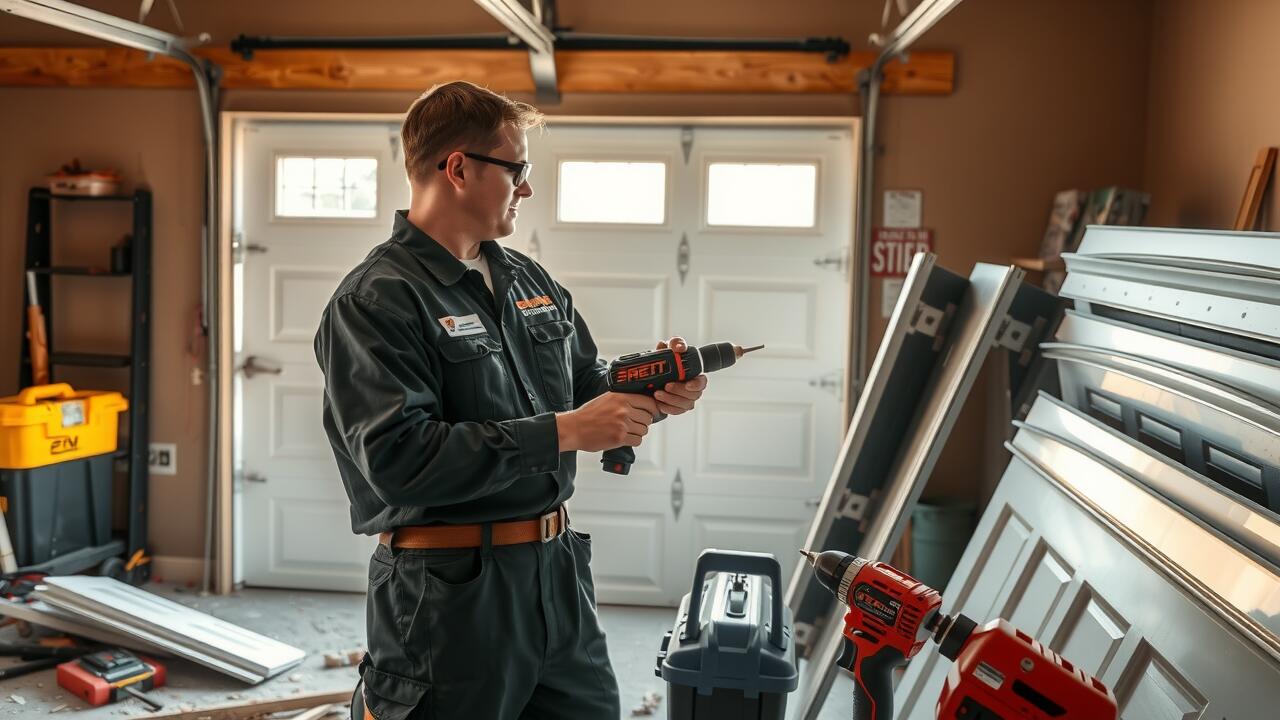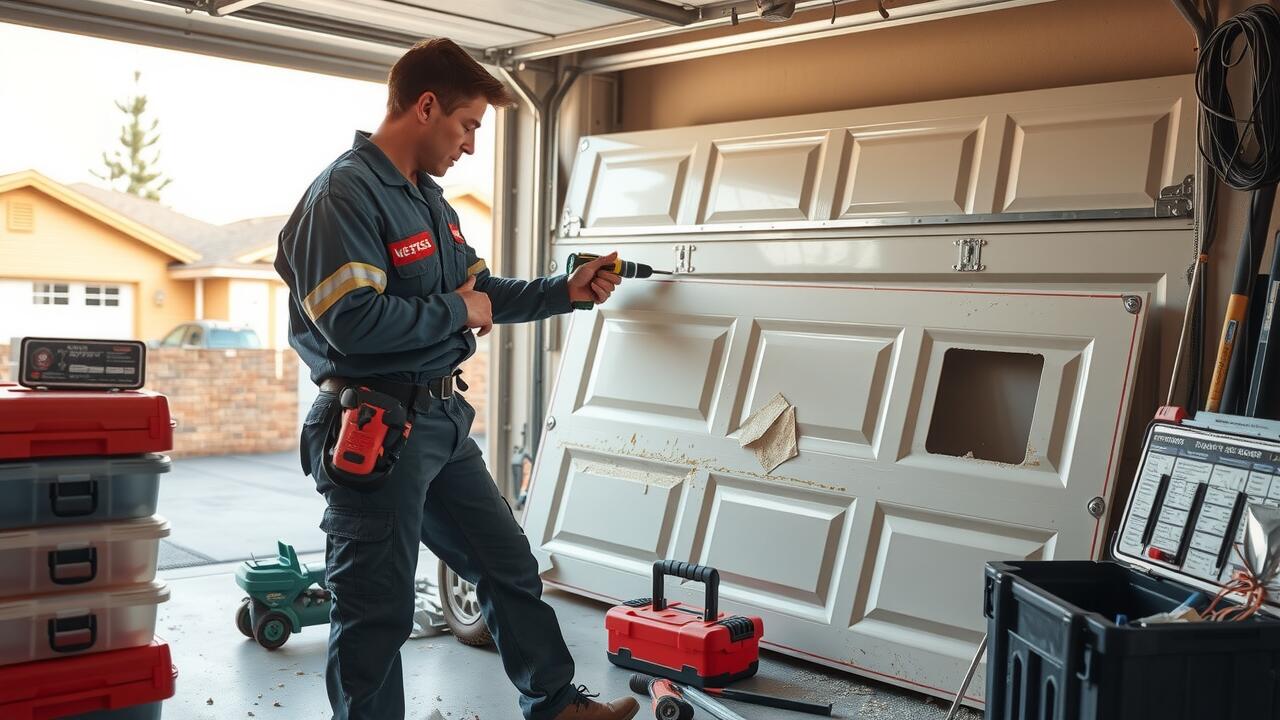
Table Of Contents
Warranties and Guarantees
Warranties and guarantees play a crucial role in the overall cost of garage door replacement. Many manufacturers offer warranties that cover parts and sometimes labor for specific durations. Customers should carefully review the terms and conditions to understand what is included and what exceptions may apply. A good warranty can provide peace of mind, ensuring that if issues arise within an agreed timeframe, they will be addressed without additional expenses.
In addition to manufacturer warranties, many contractors offer their own guarantees on installation work. These guarantees often cover craftsmanship for a certain number of years. Understanding the differences between these warranties is essential before proceeding with garage door replacement in your home. A reputable installer typically provides clear documentation of both the product and labor guarantees, which can significantly affect the total investment in the long run.
How They Influence Total Cost
Warranties and guarantees play a crucial role in determining the overall cost of garage door replacement in any home. A door that comes with a longer warranty often reflects higher-quality materials and craftsmanship. Homeowners might see an upfront increase in price but are likely to save money in the long run due to reduced repair or replacement needs.
Additionally, the reputation and reliability of the manufacturer can affect the cost. Established brands may charge more for their products, but they often provide better service and durability. For garage door replacement in residential settings, investing in trusted products can lead to peace of mind, reducing unexpected costs over time.
Hidden Costs to Watch Out For
When planning for Garage Door Replacement in your home, it’s crucial to consider hidden costs that may arise during the project. Often, homeowners focus solely on the price of the new door and installation fees but overlook additional expenses. For instance, old garage door removal, repairs to the opening, and necessary upgrades to insulation can add to the final bill. These costs can vary significantly based on geographical area and specific project requirements.
Permits and disposal fees are common hidden expenses that can catch homeowners off guard. Many regions require permits for structural changes, including new garage door installations. These permits can carry varying costs depending on local ordinances. Additionally, disposal fees for the old garage door might not be included in the upfront quotes provided by contractors. It’s essential to ask about these factors to avoid unexpected charges when budgeting for Garage Door Replacement in your home.
Permits and Disposal Fees
When considering Garage Door Replacement in your home, it is essential to factor in any permits that may be required for the installation process. Local building codes often mandate obtaining a permit to ensure compliance with safety standards and regulations. Failing to secure the proper permits can lead to fines or complications when selling your home, so it is advisable to check with your local authorities.
Disposal fees also play a role in the overall cost of Garage Door Replacement. Removing the old garage door involves not just labor but also responsible disposal, which can incur additional charges. Many homeowners overlook this expense, assuming it might be included in the installation quote. Understanding these potential costs will help you budget more effectively for your garage door project.
Financing Options for Garage Door Replacement
When considering financing options for garage door replacement, homeowners have several paths to choose from. Many local contractors offer payment plans that allow for the cost to be spread out over several months or even years. This approach can alleviate the immediate financial burden, making it easier to manage expenses without compromising on the quality of the new door. Additionally, some businesses may provide promotional financing options that include zero-interest periods, which can be quite advantageous.
Another avenue is to explore personal loans or home equity lines of credit. These options can provide the necessary funds for garage door replacement in a more flexible manner. While personal loans typically come with fixed rates, home equity lines might offer variable rates but allow for more extensive renovations. It’s essential to assess each option’s terms and interest rates before making a decision, as this can significantly affect the overall cost of the replacement project.
Understanding Payment Plans and Loans
When considering garage door replacement in your home, exploring payment plans and loans can provide flexibility in managing costs. Many companies offer financing options that allow homeowners to spread payments over time, often with low or no interest rates attached. These plans can vary based on credit scores, so it’s essential for homeowners to evaluate their financial situation before committing to a specific option.
Additionally, personal loans are another avenue for financing garage door replacement in your residence. These loans typically have fixed interest rates and are not tied to any specific contractor or company. Homeowners should take the time to shop around for the best rates and terms, as this can significantly impact the overall cost of the replacement. Understanding these options can ease the financial burden and help make the process more manageable.
FAQS
What is the average cost to replace a garage door?
The average cost to replace a garage door typically ranges from $800 to $3,000, depending on factors such as the type of door, materials, and installation fees.
Are there warranties available for garage doors?
Yes, most garage doors come with warranties that cover parts and sometimes labor for a specific period, usually ranging from 1 to 10 years, depending on the manufacturer.
What hidden costs should I be aware of when replacing a garage door?
Hidden costs can include permits, disposal fees for the old door, and potential upgrades to electrical systems or structural modifications that may be necessary during installation.
Can I finance my garage door replacement?
Yes, many companies offer financing options, including payment plans and loans specifically designed for home improvement projects like garage door replacement.
How do I choose the right garage door for my home?
When choosing a garage door, consider factors like material, style, insulation, and security features, as well as your budget and the architectural style of your home.
